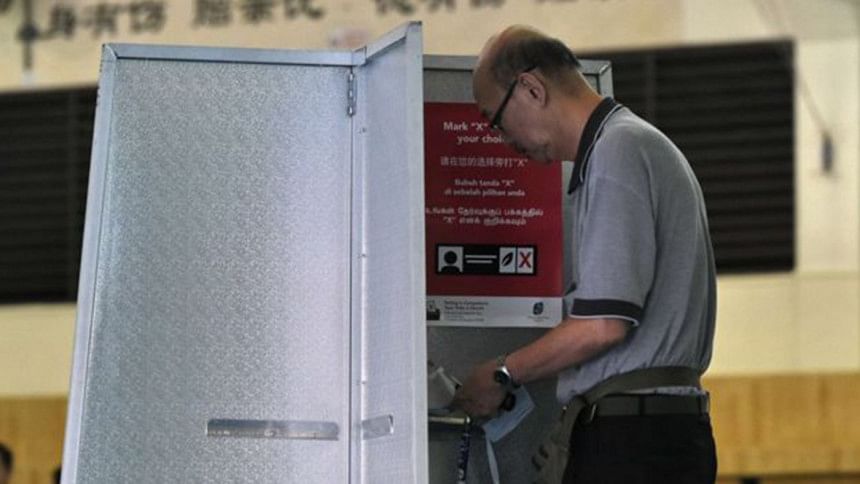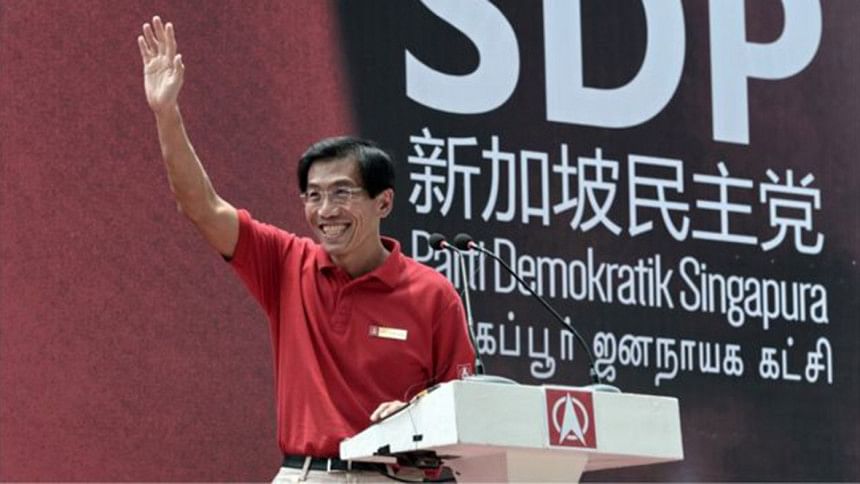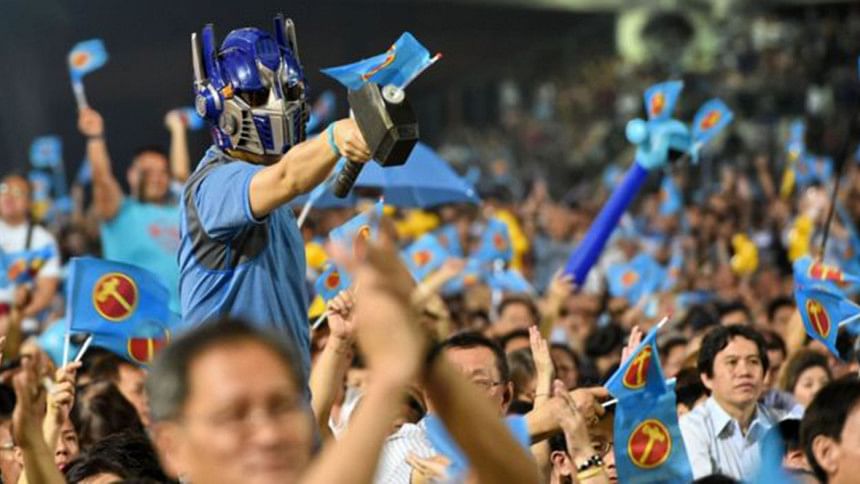Singaporeans vote in general election

Singaporeans have been voting in a general election where the ruling People's Action Party (PAP) is widely expected to retain power.
But for the first time ever, opposition candidates have run in all constituencies, and could gain seats.
It is also the first election since the death of long-term leader Lee Kuan Yew, founder of the ruling People's Action Party and the prime minister's father.
The PAP has won every election since Singapore's independence in 1965.
The party's success has been attributed to its widespread popularity among Singaporeans - who have seen their country rapidly evolve into a first-world economy - as well as its tight political control.
But government stumbles in managing immigration and infrastructure, coupled with a greater desire by younger Singaporeans for political plurality, has led to increasing gains by opposition parties over the years.

The PAP's biggest competition is the Workers Party, which in the last parliament had seven MPs out of 87 seats, but a number of smaller parties have also been running. The next parliament will have 89 seats.
In previous elections, the PAP retained some of its seats without a vote - known as a walkover - as no opposition candidate ran against them. But this year every seat has been contested.
The voting comes at the end of a colourful but brief nine-day election campaign period.
At least two million Singaporeans were expected to cast their votes. Polling stations closed at 20:00 local time on Friday (12:00 GMT).
The elections department, for the first time, will be announcing sample counts soon after voting closes. Opinion and exit polls are not allowed in Singapore's elections.
At the scene: Tessa Wong, BBC News, Singapore
Throughout the day, polling stations in Tanjong Pagar teemed with residents excited to cast their first vote in decades.

The historic district has long been associated with its former MP Lee Kuan Yew, whose overwhelming popularity meant no opposition party ran against him and his team for 24 years.
One resident, administrative executive SH Lee, told the BBC: "I thought I would never get to vote in my lifetime!"
To many Singaporeans, an election is not just a rare chance to revel in the cut and thrust of political sparring in this carefully controlled country, but also to simply vote.
Few opposition parties contested in the past and walkovers used to be common, due to complex electoral rules and a palpable climate of fear. But times are changing.
The watershed 2011 general election saw the lowest-ever showing by the PAP and the opposition making unprecedented gains on the back of unhappiness over an influx of foreigners, a housing shortage, and transport breakdowns.
Immigration remains a key issue on voters' minds. "I'm graduating soon, and I'm concerned about finding a job with more foreigners here," said 26-year-old student Jerome Victor.
The PAP sought to remedy these problems, and four years on, it is asking for its reward in the form of a bigger mandate. Meanwhile, the Workers' Party, the biggest opposition party, has called on Singaporeans to vote in more of its candidates to keep the PAP on its toes.

 For all latest news, follow The Daily Star's Google News channel.
For all latest news, follow The Daily Star's Google News channel. 



Comments